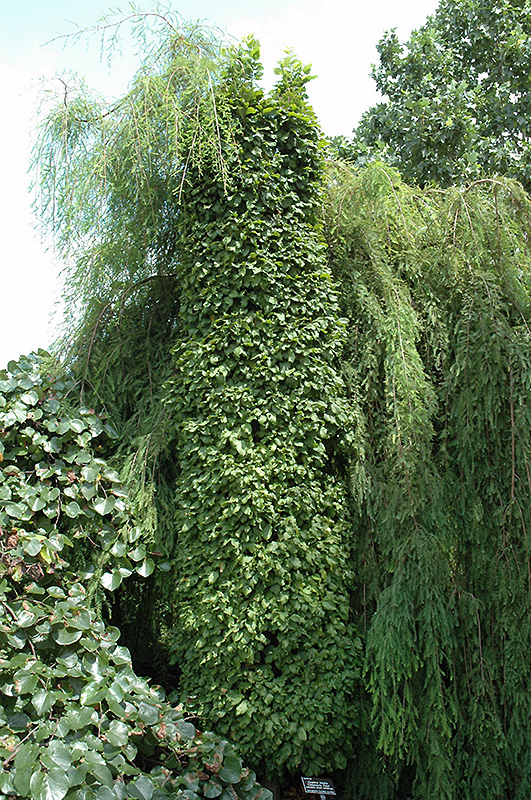Columnaris Nana Hornbeam
Carpinus betulus 'Columnaris Nana'
Height: 10 feet
Spread: 4 feet
Sunlight:
![]()
Hardiness Zone: 4
Other Names: Dwarf European Hornbeam, Common Hornbeam
Description:
A dense dwarf variety with excellent form and few troubles; columnar habit makes it great for smaller landscapes; takes pruning very well and can make a fantastic hedge
Ornamental Features
Columnaris Nana Hornbeam is primarily valued in the landscape or garden for its rigidly columnar form. It has forest green deciduous foliage. The glossy pointy leaves turn an outstanding gold in the fall. The smooth gray bark adds an interesting dimension to the landscape.
Landscape Attributes
Columnaris Nana Hornbeam is a dense multi-stemmed deciduous shrub with a narrowly upright and columnar growth habit. Its relatively fine texture sets it apart from other landscape plants with less refined foliage.
This is a relatively low maintenance shrub, and is best pruned in late winter once the threat of extreme cold has passed. It has no significant negative characteristics.
Columnaris Nana Hornbeam is recommended for the following landscape applications;
- Accent
- Vertical Accent
- Mass Planting
- Hedges/Screening
Planting & Growing
Columnaris Nana Hornbeam will grow to be about 10 feet tall at maturity, with a spread of 4 feet. It has a low canopy with a typical clearance of 2 feet from the ground, and is suitable for planting under power lines. It grows at a slow rate, and under ideal conditions can be expected to live to a ripe old age of 120 years or more; think of this as a heritage shrub for future generations!
This shrub should only be grown in full sunlight. It prefers to grow in average to moist conditions, and shouldn't be allowed to dry out. It is not particular as to soil type or pH. It is highly tolerant of urban pollution and will even thrive in inner city environments. This is a selected variety of a species not originally from North America.

